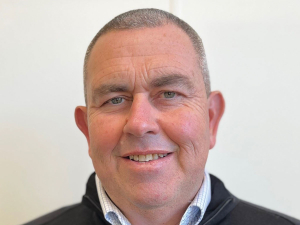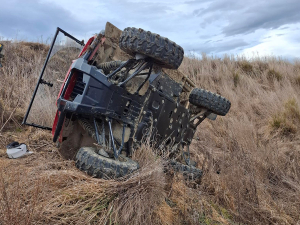Australian farmers advocate NFF says this year’s Federal Election will be a defining moment for Australian agriculture.
The possibility of a minority Australian government, global trade uncertainty with Donald Trump at the helm of the US, and the climate targets hurled at farmers could all have an impact on sector this year, says National Farmers Federation president David Jochinke.
In an article first published on Farm Online, Jochinke says elections are expected before May 17 and the NFF is hitting the ground running.
“Our policy team is working closely with our members to develop the industry’s asks for our current and future political representatives’ consideration.
“I know how sensitive our industry is to being perceived as ‘whinging farmers’, but the harsh truth is there is a long list of challenges that urgently need federal attention.
“If the next government can get policy settings right for agriculture, it will give Australia’s productivity slump a leg up in the right direction. Also, we all know getting these things right can also position agriculture to directly influence the cost of living situation all Australians are sorely feeling.”
He singled out taxes as the one of the main issues.
The proposed ‘super tax’ could be the first cab off the rank this sitting year when both houses return next month to Canberra. The Government attempted to rush the super tax through parliament in the dying moments of 2024, but was ultimately unsuccessful, thanks to a handful of crossbench senators.
“We believe the super tax would be disastrous for the thousands of families who set up self-managed superannuation funds for their farm’s future. We urge the government to reshape this policy before the election,” Jochinke says.
"We’re also seeking commitments to maintain the diesel fuel rebate. Industry is backed by economists in the predication any changes to the treatment of fuel tax credits will cost Australian families and businesses. Then there’s the Biosecurity Protection Levy. This must be scrapped once and for all and replaced with a new funding model developed with industry.
“At every barbecue across regional Australia, usually the first topic that comes up is the state of our roads, which is why we are calling for $1 billion to address the freight supply chain issues plaguing our industry. Current road and rail infrastructure is inefficient and often unsafe. It’s time to invest heavily to save time, money, and most importantly, lives.
“Telecommunications are still treated as a luxury and not a necessity in the bush. This must change. We’re hopeful the Regional Telecommunications Review recommendations will be fully implemented, one of which is to develop a Regional Telecommunications Strategy.
“Australian ag industry remains steadfast in its opposition to the policy to phase out live sheep exports by sea. We will continue to petition the reinstatement of this trade in West Australia.”
Workforce woes continue to be a thorn in productivity’s side. The NFF wants to see the implementation of a dedicated farm visa, ensuring the Working Holiday Maker program continues, and the winding back of harmful Pacific Australia Labour Mobility (PALM) scheme changes.











